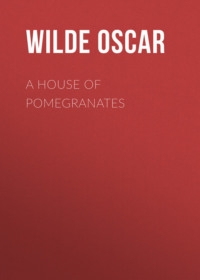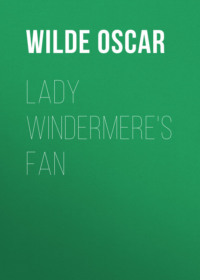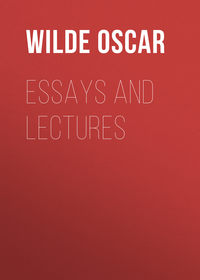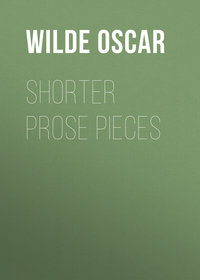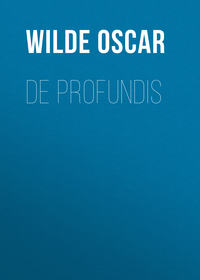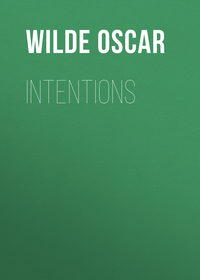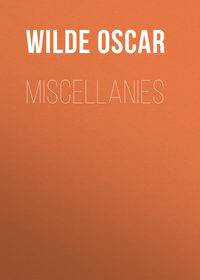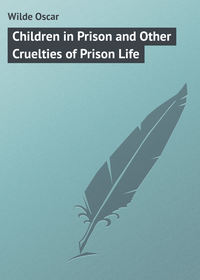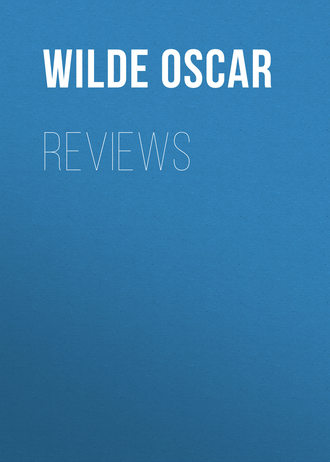 полная версия
полная версияReviews
(1) Love’s Widowhood and Other Poems. By Alfred Austin. (Macmillan and Co.)
(2) Poems and Translations. By W. J. Linton. (Nimmo.)
(3) Dante: a Dramatic Poem. By Héloïse Durant. (Kegan Paul.)
(4) Father O’Flynn and Other Irish Lyrics. By A. P. Graves. (Swan Sonnenschein and Co.)
(5) The Judgment of the City and Other Poems. (Swan Sonnenschein and Co.)
MR. SWINBURNE’S LAST VOLUME
(Pall Mall Gazette, June 27, 1889.)
Mr. Swinburne once set his age on fire by a volume of very perfect and very poisonous poetry. Then he became revolutionary and pantheistic, and cried out against those that sit in high places both in heaven and on earth. Then he invented Marie Stuart and laid upon us the heavy burden of Bothwell. Then he retired to the nursery and wrote poems about children of a somewhat over-subtle character. He is now extremely patriotic, and manages to combine with his patriotism a strong affection for the Tory party. He has always been a great poet. But he has his limitations, the chief of which is, curiously enough, the entire lack of any sense of limit. His song is nearly always too loud for his subject. His magnificent rhetoric, nowhere more magnificent than in the volume that now lies before us, conceals rather than reveals. It has been said of him, and with truth, that he is a master of language, but with still greater truth it may be said that Language is his master. Words seem to dominate him. Alliteration tyrannises over him. Mere sound often becomes his lord. He is so eloquent that whatever he touches becomes unreal.
Let us turn to the poem on the Armada:
The wings of the south-west wind are widened; the breath of his fervent lips,More keen than a sword’s edge, fiercer than fire, falls full on the plunging ships.The pilot is he of the northward flight, their stay and their steersman he;A helmsman clothed with the tempest, and girdled with strength to constrain the sea.And the host of them trembles and quails, caught fast in his hand as a bird in the toils;For the wrath and the joy that fulfil him are mightier than man’s, whom he slays and spoils.And vainly, with heart divided in sunder, and labour of wavering will,The lord of their host takes counsel with hope if haply their star shine still.Somehow we seem to have heard all this before. Does it come from the fact that of all the poets who ever lived Mr. Swinburne is the one who is the most limited in imagery? It must be admitted that he is so. He has wearied us with his monotony. ‘Fire’ and the ‘Sea’ are the two words ever on his lips. We must confess also that this shrill singing – marvellous as it is – leaves us out of breath. Here is a passage from a poem called A Word with the Wind:
Be the sunshine bared or veiled, the sky superb or shrouded,Still the waters, lax and languid, chafed and foiled,Keen and thwarted, pale and patient, clothed with fire or clouded,Vex their heart in vain, or sleep like serpents coiled.Thee they look for, blind and baffled, wan with wrath and weary,Blown for ever back by winds that rock the bird:Winds that seamews breast subdue the sea, and bid the drearyWaves be weak as hearts made sick with hope deferred.Let the clarion sound from westward, let the south bear tokenHow the glories of thy godhead sound and shine:Bid the land rejoice to see the land-wind’s broad wings broken,Bid the sea take comfort, bid the world be thine.Verse of this kind may be justly praised for the sustained strength and vigour of its metrical scheme. Its purely technical excellence is extraordinary. But is it more than an oratorical tour de force? Does it really convey much? Does it charm? Could we return to it again and again with renewed pleasure? We think not. It seems to us empty.
Of course, we must not look to these poems for any revelation of human life. To be at one with the elements seems to be Mr. Swinburne’s aim. He seeks to speak with the breath of wind and wave. The roar of the fire is ever in his ears. He puts his clarion to the lips of Spring and bids her blow, and the Earth wakes from her dreams and tells him her secret. He is the first lyric poet who has tried to make an absolute surrender of his own personality, and he has succeeded. We hear the song, but we never know the singer. We never even get near to him. Out of the thunder and splendour of words he himself says nothing. We have often had man’s interpretation of Nature; now we have Nature’s interpretation of man, and she has curiously little to say. Force and Freedom form her vague message. She deafens us with her clangours.
But Mr. Swinburne is not always riding the whirlwind and calling out of the depths of the sea. Romantic ballads in Border dialect have not lost their fascination for him, and this last volume contains some very splendid examples of this curious artificial kind of poetry. The amount of pleasure one gets out of dialect is a matter entirely of temperament. To say ‘mither’ instead of ‘mother’ seems to many the acme of romance. There are others who are not quite so ready to believe in the pathos of provincialisms. There is, however, no doubt of Mr. Swinburne’s mastery over the form, whether the form be quite legitimate or not. The Weary Wedding has the concentration and colour of a great drama, and the quaintness of its style lends it something of the power of a grotesque. The ballad of The Witch-Mother, a mediæval Medea who slays her children because her lord is faithless, is worth reading on account of its horrible simplicity. The Bride’s Tragedy, with its strange refrain of
In, in, out and in,Blaws the wind and whirls the whin:The Jacobite’s Exile—
O lordly flow the Loire and Seine,And loud the dark Durance:But bonnier shine the braes of TyneThan a’ the fields of France;And the waves of Till that speak sae stillGleam goodlier where they glance:The Tyneside Widow and A Reiver’s Neck-verse are all poems of fine imaginative power, and some of them are terrible in their fierce intensity of passion. There is no danger of English poetry narrowing itself to a form so limited as the romantic ballad in dialect. It is of too vital a growth for that. So we may welcome Mr. Swinburne’s masterly experiments with the hope that things which are inimitable will not be imitated. The collection is completed by a few poems on children, some sonnets, a threnody on John William Inchbold, and a lovely lyric entitled The Interpreters.
In human thought have all things habitation;Our daysLaugh, lower, and lighten past, and find no stationThat stays.But thought and faith are mightier things than timeCan wrong,Made splendid once by speech, or made sublimeBy song.Remembrance, though the tide of change that rollsWax hoary,Gives earth and heaven, for song’s sake and the soul’s,Their glory.Certainly, ‘for song’s sake’ we should love Mr. Swinburne’s work, cannot, indeed, help loving it, so marvellous a music-maker is he. But what of the soul? For the soul we must go elsewhere.
Poems and Ballads. Third Series. By Algernon Charles Swinburne. (Chatto and Windus.)
THREE NEW POETS
(Pall Mall Gazette, July 12, 1889.)
Books of poetry by young writers are usually promissory notes that are never met. Now and then, however, one comes across a volume that is so far above the average that one can hardly resist the fascinating temptation of recklessly prophesying a fine future for its author. Such a book Mr. Yeats’s Wanderings of Oisin certainly is. Here we find nobility of treatment and nobility of subject-matter, delicacy of poetic instinct and richness of imaginative resource. Unequal and uneven much of the work must be admitted to be. Mr. Yeats does not try to ‘out-baby’ Wordsworth, we are glad to say; but he occasionally succeeds in ‘out-glittering’ Keats, and, here and there, in his book we come across strange crudities and irritating conceits. But when he is at his best he is very good. If he has not the grand simplicity of epic treatment, he has at least something of the largeness of vision that belongs to the epical temper. He does not rob of their stature the great heroes of Celtic mythology. He is very naïve and very primitive and speaks of his giants with the air of a child. Here is a characteristic passage from the account of Oisin’s return from the Island of Forgetfulness:
And I rode by the plains of the sea’s edge, where all is barren and grey,Grey sands on the green of the grasses and over the dripping trees,Dripping and doubling landward, as though they would hasten awayLike an army of old men longing for rest from the moan of the seas.Long fled the foam-flakes around me, the winds fled out of the vast,Snatching the bird in secret, nor knew I, embosomed apart,When they froze the cloth on my body like armour riveted fast,For Remembrance, lifting her leanness, keened in the gates of my heart.Till fattening the winds of the morning, an odour of new-mown hayCame, and my forehead fell low, and my tears like berries fell down;Later a sound came, half lost in the sound of a shore far away,From the great grass-barnacle calling, and later the shore-winds brown.If I were as I once was, the gold hooves crushing the sand and the shells,Coming forth from the sea like the morning with red lips murmuring a song,Not coughing, my head on my knees, and praying, and wroth with the bells,I would leave no Saint’s head on his body, though spacious his lands were and strong.Making way from the kindling surges, I rode on a bridle-path,Much wondering to see upon all hands, of wattle and woodwork made,Thy bell-mounted churches, and guardless the sacred cairn and the earth,And a small and feeble populace stooping with mattock and spade.In one or two places the music is faulty, the construction is sometimes too involved, and the word ‘populace’ in the last line is rather infelicitous; but, when all is said, it is impossible not to feel in these stanzas the presence of the true poetic spirit.
A young lady who seeks for a ‘song surpassing sense,’ and tries to reproduce Mr. Browning’s mode of verse for our edification, may seem to be in a somewhat parlous state. But Miss Caroline Fitz Gerald’s work is better than her aim. Venetia Victrix is in many respects a fine poem. It shows vigour, intellectual strength, and courage. The story is a strange one. A certain Venetian, hating one of the Ten who had wronged him and identifying his enemy with Venice herself, abandons his native city and makes a vow that, rather than lift a hand for her good, he will give his soul to Hell. As he is sailing down the Adriatic at night, his ship is suddenly becalmed and he sees a huge galley
where sateLike counsellors on high, exempt, elate,The fiends triumphant in their fiery state,on their way to Venice. He has to choose between his own ruin and the ruin of his city. After a struggle, he determines to sacrifice himself to his rash oath.
I climbed aloft. My brain had grown one thought,One hope, one purpose. And I heard the hissOf raging disappointment, loth to missIts prey – I heard the lapping of the flame,That through the blenchèd figures went and came,Darting in frenzy to the devils’ yell.I set that cross on high, and cried: ‘To hellMy soul for ever, and my deed to God!Once Venice guarded safe, let this vile clodDrift where fate will!’And then (the hideous laughOf fiends in full possession, keen to quaffThe wine of one new soul not weak with tears,Pealing like ruinous thunder in mine ears)I fell, and heard no more. The pale day brokeThrough lazar-windows, when once more I woke,Remembering I might no more dare to pray.Venetia Victrix is followed by Ophelion, a curious lyrical play whose dramatis personæ consist of Night, Death, Dawn and a Scholar. It is intricate rather than musical, but some of the songs are graceful – notably one beginning
Lady of heaven most pure and holy,Artemis, fleet as the flying deer,Glide through the dusk like a silver shadow,Mirror thy brow in the lonely mere.Miss Fitz Gerald’s volume is certainly worth reading.
Mr. Richard Le Gallienne’s little book, Volumes in Folio as he quaintly calls it, is full of dainty verse and delicate fancy. Lines such as
And lo! the white face of the dawnYearned like a ghost’s against the pane,A sobbing ghost amid the rain;Or like a chill and pallid roseSlowly upclimbing from the lawn, strike,with their fantastic choice of metaphors, a pleasing note. At present Mr. Le Gallienne’s muse seems to devote herself entirely to the worship of books, and Mr. Le Gallienne himself is steeped in literary traditions, making Keats his model and seeking to reproduce something of Keats’s richness and affluence of imagery. He is keenly conscious how derivative his inspiration is:
Verse of my own! why ask so poor a thing,When I might gather from the garden-waysOf sunny memory fragrant offeringOf deathless blooms and white unwithering sprays?Shakspeare had given me an English rose,And honeysuckle Spenser sweet as dew,Or I had brought you from that dreamy closeKeats’ passion-blossom, or the mystic blueStar-flower of Shelley’s song, or shaken goldFrom lilies of the Blessed Damosel,Or stolen fire from out the scarlet foldOf Swinburne’s poppies..Yet now that he has played his prelude with so sensitive and so graceful a touch, we have no doubt that he will pass to larger themes and nobler subject-matter, and fulfil the hope he expresses in this sextet:
For if perchance some music should be mine,I would fling forth its notes like a fierce sea,To wash away the piles of tyranny,To make love free and faith unbound of creed.O for some power to fill my shrunken line,And make a trumpet of my oaten reed.(1) The Wanderings of Oisin and Other Poems. By W. B. Yeats. (Kegan Paul.)
(2) Venetia Victrix. By Caroline Fitz Gerald. (Macmillan and Co.)
(3) Volumes in Folio. By Richard Le Gallienne. (Elkin Mathews.)
A CHINESE SAGE
(Speaker, February 8, 1890.)
A eminent Oxford theologian once remarked that his only objection to modern progress was that it progressed forward instead of backward – a view that so fascinated a certain artistic undergraduate that he promptly wrote an essay upon some unnoticed analogies between the development of ideas and the movements of the common sea-crab. I feel sure the Speaker will not be suspected even by its most enthusiastic friends of holding this dangerous heresy of retrogression. But I must candidly admit that I have come to the conclusion that the most caustic criticism of modern life I have met with for some time is that contained in the writings of the learned Chuang Tzŭ, recently translated into the vulgar tongue by Mr. Herbert Giles, Her Majesty’s Consul at Tamsui.
The spread of popular education has no doubt made the name of this great thinker quite familiar to the general public, but, for the sake of the few and the over-cultured, I feel it my duty to state definitely who he was, and to give a brief outline of the character of his philosophy.
Chuang Tzŭ, whose name must carefully be pronounced as it is not written, was born in the fourth century before Christ, by the banks of the Yellow River, in the Flowery Land; and portraits of the wonderful sage seated on the flying dragon of contemplation may still be found on the simple tea-trays and pleasing screens of many of our most respectable suburban households. The honest ratepayer and his healthy family have no doubt often mocked at the dome-like forehead of the philosopher, and laughed over the strange perspective of the landscape that lies beneath him. If they really knew who he was, they would tremble. For Chuang Tzŭ spent his life in preaching the great creed of Inaction, and in pointing out the uselessness of all useful things. ‘Do nothing, and everything will be done,’ was the doctrine which he inherited from his great master Lao Tzŭ. To resolve action into thought, and thought into abstraction, was his wicked transcendental aim. Like the obscure philosopher of early Greek speculation, he believed in the identity of contraries; like Plato, he was an idealist, and had all the idealist’s contempt for utilitarian systems; he was a mystic like Dionysius, and Scotus Erigena, and Jacob Böhme, and held, with them and with Philo, that the object of life was to get rid of self-consciousness, and to become the unconscious vehicle of a higher illumination. In fact, Chuang Tzŭ may be said to have summed up in himself almost every mood of European metaphysical or mystical thought, from Heraclitus down to Hegel. There was something in him of the Quietist also; and in his worship of Nothing he may be said to have in some measure anticipated those strange dreamers of mediæval days who, like Tauler and Master Eckhart, adored the purum nihil and the Abyss. The great middle classes of this country, to whom, as we all know, our prosperity, if not our civilisation, is entirely due, may shrug their shoulders over all this and ask, with a certain amount of reason, what is the identity of contraries to them, and why they should get rid of that self-consciousness which is their chief characteristic. But Chuang Tzŭ was something more than a metaphysician and an illuminist. He sought to destroy society, as we know it, as the middle classes know it; and the sad thing is that he combines with the passionate eloquence of a Rousseau the scientific reasoning of a Herbert Spencer. There is nothing of the sentimentalist in him. He pities the rich more than the poor, if he ever pities at all, and prosperity seems to him as tragic a thing as suffering. He has nothing of the modern sympathy with failures, nor does he propose that the prizes should always be given on moral grounds to those who come in last in the race. It is the race itself that he objects to; and as for active sympathy, which has become the profession of so many worthy people in our own day, he thinks that trying to make others good is as silly an occupation as ‘beating a drum in a forest in order to find a fugitive.’ It is a mere waste of energy. That is all. While, as for a thoroughly sympathetic man, he is, in the eyes of Chuang Tzŭ, simply a man who is always trying to be somebody else, and so misses the only possible excuse for his own existence.
Yes; incredible as it may seem, this curious thinker looked back with a sigh of regret to a certain Golden Age when there were no competitive examinations, no wearisome educational systems, no missionaries, no penny dinners for the people, no Established Churches, no Humanitarian Societies, no dull lectures about one’s duty to one’s neighbour, and no tedious sermons about any subject at all. In those ideal days, he tells us, people loved each other without being conscious of charity, or writing to the newspapers about it. They were upright, and yet they never published books upon Altruism. As every man kept his knowledge to himself, the world escaped the curse of scepticism; and as every man kept his virtues to himself, nobody meddled in other people’s business. They lived simple and peaceful lives, and were contented with such food and raiment as they could get. Neighbouring districts were in sight, and ‘the cocks and dogs of one could be heard in the other,’ yet the people grew old and died without ever interchanging visits. There was no chattering about clever men, and no laudation of good men. The intolerable sense of obligation was unknown. The deeds of humanity left no trace, and their affairs were not made a burden for posterity by foolish historians.
In an evil moment the Philanthropist made his appearance, and brought with him the mischievous idea of Government. ‘There is such a thing,’ says Chuang Tzŭ, ‘as leaving mankind alone: there has never been such a thing as governing mankind.’ All modes of government are wrong. They are unscientific, because they seek to alter the natural environment of man; they are immoral because, by interfering with the individual, they produce the most aggressive forms of egotism; they are ignorant, because they try to spread education; they are self-destructive, because they engender anarchy. ‘Of old,’ he tells us, ‘the Yellow Emperor first caused charity and duty to one’s neighbour to interfere with the natural goodness of the heart of man. In consequence of this, Yao and Shun wore the hair off their legs in endeavouring to feed their people. They disturbed their internal economy in order to find room for artificial virtues. They exhausted their energies in framing laws, and they were failures.’ Man’s heart, our philosopher goes on to say, may be ‘forced down or stirred up,’ and in either case the issue is fatal. Yao made the people too happy, so they were not satisfied. Chieh made them too wretched, so they grew discontented. Then every one began to argue about the best way of tinkering up society. ‘It is quite clear that something must be done,’ they said to each other, and there was a general rush for knowledge. The results were so dreadful that the Government of the day had to bring in Coercion, and as a consequence of this ‘virtuous men sought refuge in mountain caves, while rulers of state sat trembling in ancestral halls.’ Then, when everything was in a state of perfect chaos, the Social Reformers got up on platforms, and preached salvation from the ills that they and their system had caused. The poor Social Reformers! ‘They know not shame, nor what it is to blush,’ is the verdict of Chuang Tzŭ upon them.
The economic question, also, is discussed by this almond-eyed sage at great length, and he writes about the curse of capital as eloquently as Mr. Hyndman. The accumulation of wealth is to him the origin of evil. It makes the strong violent, and the weak dishonest. It creates the petty thief, and puts him in a bamboo cage. It creates the big thief, and sets him on a throne of white jade. It is the father of competition, and competition is the waste, as well as the destruction, of energy. The order of nature is rest, repetition, and peace. Weariness and war are the results of an artificial society based upon capital; and the richer this society gets, the more thoroughly bankrupt it really is, for it has neither sufficient rewards for the good nor sufficient punishments for the wicked. There is also this to be remembered – that the prizes of the world degrade a man as much as the world’s punishments. The age is rotten with its worship of success. As for education, true wisdom can neither be learnt nor taught. It is a spiritual state, to which he who lives in harmony with nature attains. Knowledge is shallow if we compare it with the extent of the unknown, and only the unknowable is of value. Society produces rogues, and education makes one rogue cleverer than another. That is the only result of School Boards. Besides, of what possible philosophic importance can education be, when it serves simply to make each man differ from his neighbour? We arrive ultimately at a chaos of opinions, doubt everything, and fall into the vulgar habit of arguing; and it is only the intellectually lost who ever argue. Look at Hui Tzu. ‘He was a man of many ideas. His works would fill five carts. But his doctrines were paradoxical.’ He said that there were feathers in an egg, because there were feathers on a chicken; that a dog could be a sheep, because all names were arbitrary; that there was a moment when a swiftly-flying arrow was neither moving nor at rest; that if you took a stick a foot long, and cut it in half every day, you would never come to the end of it; and that a bay horse and a dun cow were three, because taken separately they were two, and taken together they were one, and one and two made up three. ‘He was like a man running a race with his own shadow, and making a noise in order to drown the echo. He was a clever gadfly, that was all. What was the use of him?’
Morality is, of course, a different thing. It went out of fashion, says Chuang Tzŭ, when people began to moralise. Men ceased then to be spontaneous and to act on intuition. They became priggish and artificial, and were so blind as to have a definite purpose in life. Then came Governments and Philanthropists, those two pests of the age. The former tried to coerce people into being good, and so destroyed the natural goodness of man. The latter were a set of aggressive busybodies who caused confusion wherever they went. They were stupid enough to have principles, and unfortunate enough to act up to them. They all came to bad ends, and showed that universal altruism is as bad in its results as universal egotism. They ‘tripped people up over charity, and fettered them with duties to their neighbours.’ They gushed over music, and fussed over ceremonies. As a consequence of all this, the world lost its equilibrium, and has been staggering ever since.


